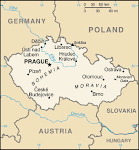
The following is an abridged version of an original article from KVAL news station in Eugene, Oregon. Matthew Olsen, acting assistant attorney general for national security, summarizes it best when he said that "These charges underscore the continuing threat posed by foreign intelligence services and should send a clear message to others who would consider selling out their country for money."
EUGENE, Ore. -- A 24-year-old Eugene man faces federal charges he traveled the globe to get money from Russian spies and disperse the money to family members at the direction of his father, a former CIA spy and Chief of Station in Bucharest, Romania, imprisoned in Oregon since 1997 for espionage.
Nathaniel James Nicholson, 24, of Eugene, Ore., and his father, Harold James Nicholson, 58, who is incarcerated at a federal prison in Sheridan, Ore., face arraignment Thursday on two counts of conspiracy, one count of acting as agents of a foreign government and four counts of money laundering, according to the U.S. Department of Justice.
The federal charges announced Thursday allege the son met with the father in prison on several occasion to obtain information with the intent to then meet with representatives of the Russian Federation.
The indictment alleges the son then brought the money, paid by the Russian Federation for the father's past espionage activities, back to Oregon to disperse to family members at his father's direction.
The two were scheduled to be arraigned Thursday in Portland at 1:30 p.m.
The indictment says Harold Nicholson, who pleaded guilty in 1997 after being paid $300,000 to pass secrets to the Russians, wanted to receive additional payments for his work, and used his son as a go-between.
Officials charged that Nathaniel Nicholson collected another $35,593 in a series of recent trips to meet Russians in San Francisco, Mexico City, Lima, and even a T.G.I. Friday's restaurant in Cyprus in December.
On each return trip to the United States, the messenger son would declare less than $10,000 in cash to avoid federal law requiring him to disclose the source of the money, authorities said.
Harold Nicholson is currently serving a 23-year prison term in Sheridan after pleading guilty to conspiring to commit espionage. As a trainer of CIA personnel, authorities say he gave the Russians the identities of the young CIA recruits he was training, and the identities of other high-level CIA officers.
According to the new indictment, the Russians still thought Harold Nicholson might be able to give them valuable information — specifically, how he had been discovered and how much the investigators had learned about Russian spying.
The father told his son he was due a "pension" for his past work for the Russians, and even dropped hints that he would like to live in Russia when he was freed. To that end, investigators say, he once relayed his age, height, weight, and other relevant personal data that would be required for a Russian visa.






























